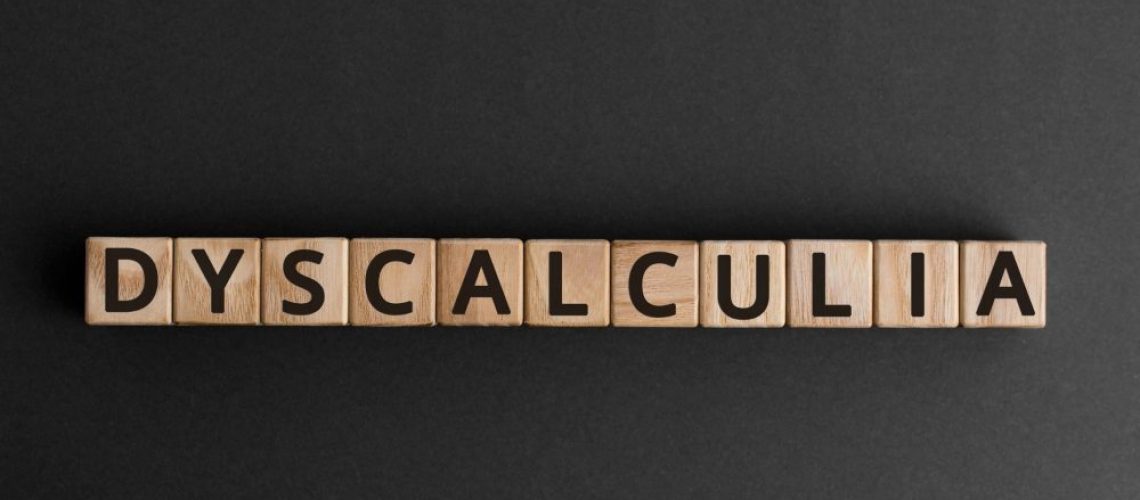It’s not unusual for children to have a tough time with math homework now and then. But if they have problems with numbers or low math test scores, yet do well in other subjects, they could have a math learning disability called dyscalculia.
It’s important to have a qualified professional assess the child before making any determinations.
Dyscalculia is a learning disability that makes it challenging to process and understand math. Children with dyscalculia struggle to comprehend even the most basic math skills, reasoning, and logic.
The disability is similar to dyslexia, just with numbers. It can come with a diagnosis of attention deficit hyperactivity disorder (ADHD). 11 percent of children with ADHD have dyscalculia. Students with dyscalculia can’t make sense of algebraic functions or numerical values.
People don’t outgrow dyscalculia. Adults in the workforce have to make the best of this learning disability after school is over. However, some strategies can help them improve their math skills and manage their challenges.
Spotting Dyscalculia
Dyscalculia symptoms changes depending on age and developmental stage.
Common symptoms of dyscalculia include:
- Difficulty understanding or remembering mathematical concepts such as multiplication, division, fractions, carrying, and borrowing.
- Difficulty reconciling verbal or written cues (such as the word “two”) and their math symbols and signifiers (the number 2).
- Trouble explaining math processes or showing work when asked to complete a mathematical task.
- Difficulty describing the sequence of events or remembering the steps in a math process.
- Trouble in judging speed or distance.
- Trouble in recognizing words like “more than” or “less than.”
Causes of Dyscalculia
Researchers don’t know exactly what causes dyscalculia, but they believe it is partly due to differences in how the brain is structured and its functions. Here are two possible causes of dyscalculia:
- Genes and heredity – Dyscalculia tends to run in families. Researchers found that problems with math comprehension can be genetic.
- Brain development – Brain imaging studies have shown some differences between people with and without dyscalculia. The composition of the brain and its function in sections used in learning skills make a difference.
The learning disability may mean that other functions are delayed or afflicted with neurological conditions. However, it could also mean nothing.
Children and adults who have dyscalculia may also have:
- Dyslexia
- Attention deficit hyperactivity disorder
- Depression
- Anxiety
Diagnosis
To properly treat a learning disability, it is important to seek out a doctor’s diagnosis first. The doctor might find that your child has other problems, like impaired vision or hearing, that affect how they learn. Once these diagnoses are ruled out, talk to your child’s math teacher to learn more about their problems with numbers.
The next step is to seek a learning specialist. The specialist will talk with you and your child and test their math abilities to determine if they have dyscalculia. Testing is the only way to know for sure if your child has the condition. The tests look at four main things:
- Computational skills – The ability to do math operations
- Math fluency – The ability to easily recall basic math facts, like 5 x 3 = 15, or how to multiply fractions
- Mental computation – The ability to solve math problems mentally
- Quantitative reasoning – The ability to understand and solve word problems
Treatment for Dyscalculia
Untreated dyscalculia can cause children’s grades to suffer in school, problems with finding or keeping a job as an adult, and difficulty managing money and finances. Fortunately, there are treatment strategies available for children and adults.
Treating Dyscalculia in Students
There are ways to treat dyscalculia at home. These may include:
- Repeated practice of basic math concepts, such as counting and addition
- Dividing subject material into smaller units to make it easier to digest information
- Use of small groups of other children for math instruction
- Repeated review of basic math concepts in hands-on, tangible demonstrations
Thanks to the Individuals with Disabilities Education Act (IDEA), students with dyscalculia can receive special services in the classroom. Dyscalculia accommodations in the classroom may include:
- Allowing more time on assignments and tests
- Allowing the use of calculators
- Adjusting the difficulty of the task
- Providing supplemental information via computer-based interactive lessons and hands-on projects

